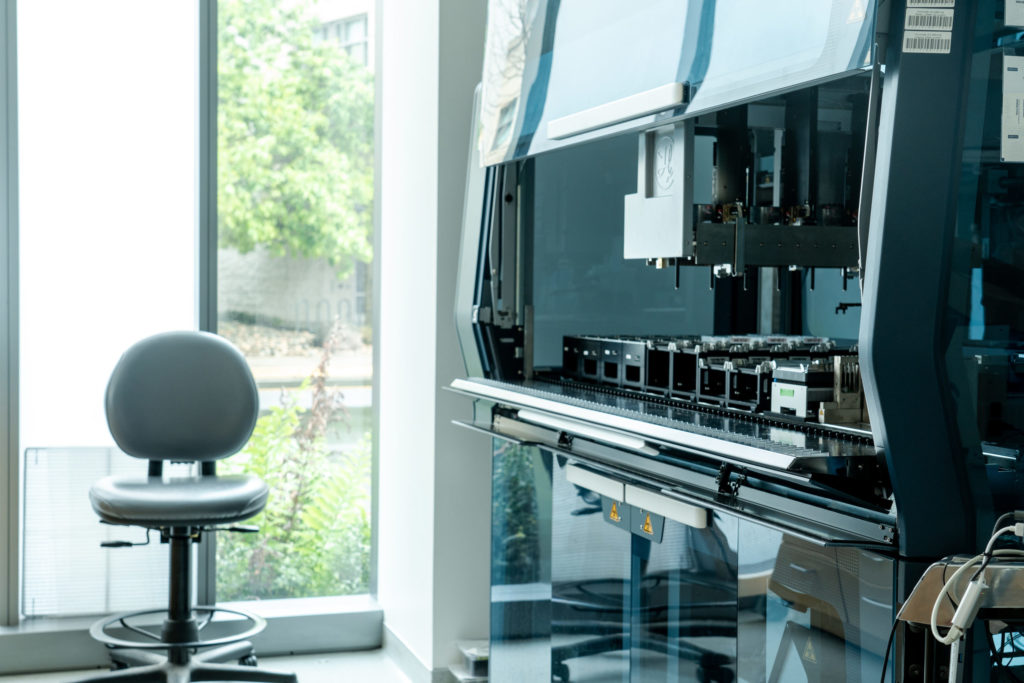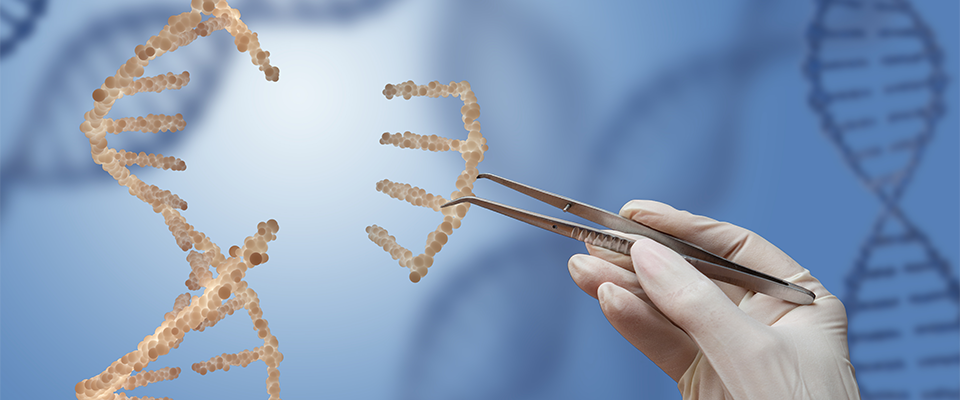We like to think human beings are created equal, but strictly speaking, it isn’t quite true. Many abnormalities, from premature births to immune diseases, can afflict newborn children with no advance warning. Now a team including researchers from UC Berkeley will investigate using newly affordable genetic tests to detect complications in newborns—while also examining the ethical concerns such tests could pose.
Newborn screening is nothing new in the United States—it began in the 1960s—but screening methods have improved and diversified ever since. The American College of Medical Genetics now recommends screening for a minimum of 29 diseases, and some states already screen for over 50.
The use of genetic sequencing to screen for disease is still something of a new frontier. But the cost of sequencing is dropping quickly, and that’s exciting to Steven Brenner, a Berkeley professor of computational biology and one of the researchers taking part in the study. Take the first human genome sequence, completed in 2003:
“It was on the order of $3 billion to get that first genome sequenced,” Brenner says. “Today, one can sequence all the genes in a genome for on the order of a few hundred dollars.” This exponential drop in cost is the impetus behind the study, and hints at what might be possible with more research: rapid genetic testing that is cheaper than conventional methods.
Funded by a $4.5 million grant from the National Institutes of Health, the study will focus on information contained in exons—parts of the gene essential for making proteins. While exons make up only 1 percent of the human genome, researchers can sequence them exclusively in a process called exome sequencing, which is cheaper than sequencing the whole genome.
Brenner and the rest of the team, which consists of researchers from Berkeley, UC San Francisco, and the Buck Institute for Research on Aging, will concentrate on newborn diseases that are currently screened for by conventional means. The secondary purpose, however, will center on testing for diseases omitted from the current testing regimen, either because they are rare or due to the lack of a cost-effective test. To confirm the accuracy of these sequencing tests, they will be performed on patients known to have the disease in question.
One disorder that exome sequencing could screen for is phenylketonuria, a metabolic abnormality. Left untreated, phenylketonuria causes irreversible neurological damage that can lead to mental retardation and seizures. While children with phenylketonuria face a lifetime of hardship, the risks associated with the disorder can be eliminated if it is detected early. A statistical review conducted by the NIH revealed that 30 to 50 percent of all deaths can be traced back to congenital abnormalities, so if sequencing techniques prove successful, the study could open the door to testing for a wide variety of disorders.
While the broad range of information in the human genome could yield valuable scientific and medical insights, it’s also something of a liability. Your DNA contains information you may not want disclosed to the government, your employer, or your insurance company, for obvious reasons. Brenner is no stranger to the risks that such a disclosure might pose. He recently penned an editorial for Nature warning the public of a possible massive leak of genetic data on individuals.
As for the study, “the big ethical concern would be someone looking at a newborn’s genome, rooting around for all kinds of info that is not germane to that newborn’s immediate health, “ he says, “and then providing that info to people who have no need to learn it.”
Concerns over gene privacy reached the Berkeley campus in 2010, when the California Department of Public Health compelled the university to modify its “Bring Your Genes To Cal” program. The program would have allowed incoming freshmen to send in saliva samples for analysis, and, in fact, about 600 did, though they never received their individual results. Instead, the results were presented as aggregate data. The health department cited laws governing the use of diagnostic tests in medicine, while the university countered that its students qualified as research participants rather than patients.
Researchers from NIH’s Ethical, Legal and Social Implications Research Program are collaborating on the study to make sure ethical considerations aren’t overlooked.
“It’s an embedded ethics component, a little like being an embedded journalist in Iraq,” says Barbara Koenig, a UCSF professor of medical anthropology and bioethics. Koenig, a Berkeley alum, is the principal investigator on a team that grapples with the thorny problems of widespread whole genome sequencing. Researchers will be creating policies on how to secure informed consent, and investigating the “constitutional foundations of newborn screening programs and the reach of police power.”
Koenig posits a scenario in which the gene for breast cancer is detected in an infant during routine screening. Such a discovery could be difficult for a new parent. “There’s nothing of immediate impact on the child,” she explains, “but you have now identified the fact that one of those parents has this gene. You’re then revealing information about their health.”
Despite these caveats, the exome sequencing team says it intends to ensure the security of genetic information in its research. “We’re putting controls in place,” says Brenner, “to prevent (privacy violations) from happening.”
—Austen Fiora




















